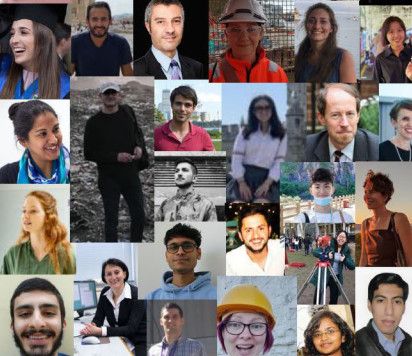The aim of this add-on option of our degree is to provide a concise and comprehensive introduction to key scientific methods for data analysis and mathematical optimisation from both a theoretical and an applied viewpoint.
This add-on is made up of the following modules:
Statistical Modelling
This module will provide you with a comprehensive understanding of statistical modelling fundamentals from a theoretical and applied viewpoint. It will develop the relevant theory, methodology and computational techniques required for you to formulate and implement statistical models to represent real-world phenomena. The course will also teach you how to program statistical models in the R programming language using both R and the RStudio graphical user interface (GUI). A pre-requisite for this course is that you must have a sufficient background in mathematics, including algebra, matrix algebra, and multivariate calculus.
Machine Learning
This module will provide you with a comprehensive understanding of machine learning concepts and their application to civil engineering applications. It will cover the three principal subfields of modern machine learning, namely supervised, unsupervised and reinforcement learning. Application examples will be drawn from a broad range of civil engineering applications, including transport. The module will also teach you how to implement machine learning models using the Python programming language, using common numerical analysis libraries (such as NumPy), and specialised tools, such as scikit-learn and PyTorch.
Data Engineering
This module will provide you with practical experience in constructing and validating models and algorithms and the necessary advanced computational skills to enable you to apply this knowledge to solving a range of complex civil engineering problems. The module includes: (1) construction, implementation, and validation of machine learning algorithms; (2) deployment of advanced machine learning libraries to solve complex problems from a broad range of civil engineering applications; (3) coverage of different machine learning approaches; (4) the operation of developer environments; (5) database development; and (6) advanced data manipulation and data visualization techniques. The module will be taught using the Python programming language and will build upon a broad range of established modelling libraries.
Design Project – Data Science Module (for each cluster specialism)
This module will provide you with practical experience in constructing and validating models and algorithms and the necessary advanced computational skills to enable you to apply this knowledge to solving a range of complex civil engineering problems. The module includes: (1) construction, implementation, and validation of machine learning algorithms; (2) deployment of advanced machine learning libraries to solve complex problems from a broad range of civil engineering applications; (3) coverage of different machine learning approaches; (4) the operation of developer environments; (5) database development; and (6) advanced data manipulation and data visualization techniques. The module will be taught using the Python programming language and will build upon a broad range of established modelling libraries.
These modules are available to those on the following programmes:
MSc Transport with Data Science (1YFT)
MSc Environmental Engineering with Data Science (1YFT)
MSc Geotechnical Engineering with Data Science (1YFT/2YPT)
MSc General Structural Engineering
Our community in numbers*
Our academics
- 55 full-time academic staff
- 42 part-time, honorary and visiting
- 90+ research staff
- 40+ Professional Services and Technical staff
Our student population
- 226 PhD students
69% male; 31% female
42 nationalities - 292 MSc students
58% male; 42% female
42 nationalities - 456 Undergraduates
42 nationalities
* all numbers are approximate
Measures of success
Research Assessment Exercise
- REF 2021. 75% of research assessed to be 4* (highest rating), 25% assessed to be 3*.
QS World Universities rankings
- Subject Ranking. Civil Engineering = 6th (2021); 6th (2020); 6th (2019); 3rd (2018)
The Times Higher Education world ranking
- Subject Ranking. Civil Engineering = 4th (2021); 11th (2020); 12th (2019)
National Student Survey
- Overall Satisfaction, 92% (2022), 90% (2021); 78% (2020); 88% (2019)
